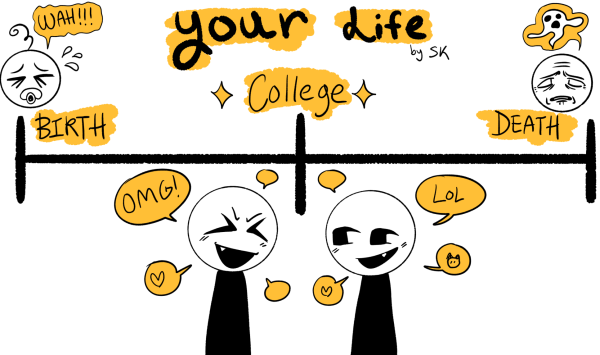Opinion — Review of “Tár”
April 19, 2023
It was Wednesday, March 29, a little after 10 a.m. I was still in my pajamas. I was on my third cup of coffee, and I was sitting in front of my laptop thinking about Tár, last year’s critical hit film where Cate Blanchett plays a pretentious orchestra conductor that treats her family and coworkers like crap.
But mostly, I was thinking about how Andie Balenger, the opinion editor at the North Wind, said she didn’t like this movie. I loved Tár, and I’m bad at letting other people have their own opinions. That’s why I’m reviewing this. I can’t just talk about why I liked Tár, I have to try and prove someone else wrong.
Before I get into it, I’m confident that you can fill in certain parts of this review for me. This was a critically acclaimed movie in a post-A24 world, so that means there are plenty of long takes, wide shots and acting that consists of people talking quietly for two hours until they find something to yell about — you get the point. I get really sick of movies that do that too much. I’m not going to touch on the technical elements too much because that’s not what made this movie for me.
Tár is subtle, but it’s not too subtle. It’s a character-driven story, so the characters act like people and are engaging to watch. We don’t just watch Lydia Tár be a bad person, we watch her have the desire to do things that benefit herself and then try to hide from the consequences.
Early on, she takes a plane home to her wife and daughter. Her wife needs her medication, which unfortunately was the pills we saw Tár popping just a few minutes before. She quickly covers her tracks and finds a way to give them to her. Then she gives her wife a hug because even though she constantly belittles her, she does love her and probably doesn’t see anything wrong with stealing her pills at the end of the day. Therefore, she isn’t guilty about spending time with her after lying to her face.
I also liked the ways the plot progressed. There were no dramatic musical cues when Tár decides to stomp on someone else. For a large portion of the film, we just watched Tár be Tár, and then see how that comes back around in the second half.
It’s a quiet movie in the best way. The performances lead us to the emotions we’re supposed to feel, with little score or expository lines to help us get there. We know we’re watching an uncomfortable scene because we watch Lydia Tár do things that make us uncomfortable.
That’s a big part of the movie. I felt uncomfortable. Lydia Tár isn’t just a jerk to her wife and orchestra members, she’s a sex predator. Without diving too much into the plot, Lydia Tár is highly successful in her field and respected by many, but she uses her position to trade professional advances for sexual favors. None of this is seen, which makes me a little happy, because watching her interact with assistants and underlings made me really stressed out.
It’s all handled with taste as well. I saw a few people online complaining that the movie makes you “root” for Lydia Tár, but I think that’s misunderstanding the movie. I definitely was not rooting for Tár at any point throughout the film, but I was cringing at watching her make things worse and worse for herself and everyone around her.
It reminded me of a backwards version of the movie “Perfect Blue.” The suspense in both films come from the main character’s heightened anxiety, and some plot elements (again, without spoilers) would make a pretty good double feature if you want to feel awful. Although in “Perfect Blue,” you root for the lead. In Tár, it’s like watching a car crash stretched out over two hours — you just can’t look away, even though you want to, and you know it’s going to be awful for everyone involved but you have to watch it happen.
Editor’s Note: The North Wind is committed to offering a free and open public forum of ideas, publishing a wide range of viewpoints to accurately represent the NMU student body. This is a staff column, written by an employee of the North Wind. As such, it expresses the personal opinions of the individual writer, and does not necessarily reflect the position of the North Wind Editorial Board.































